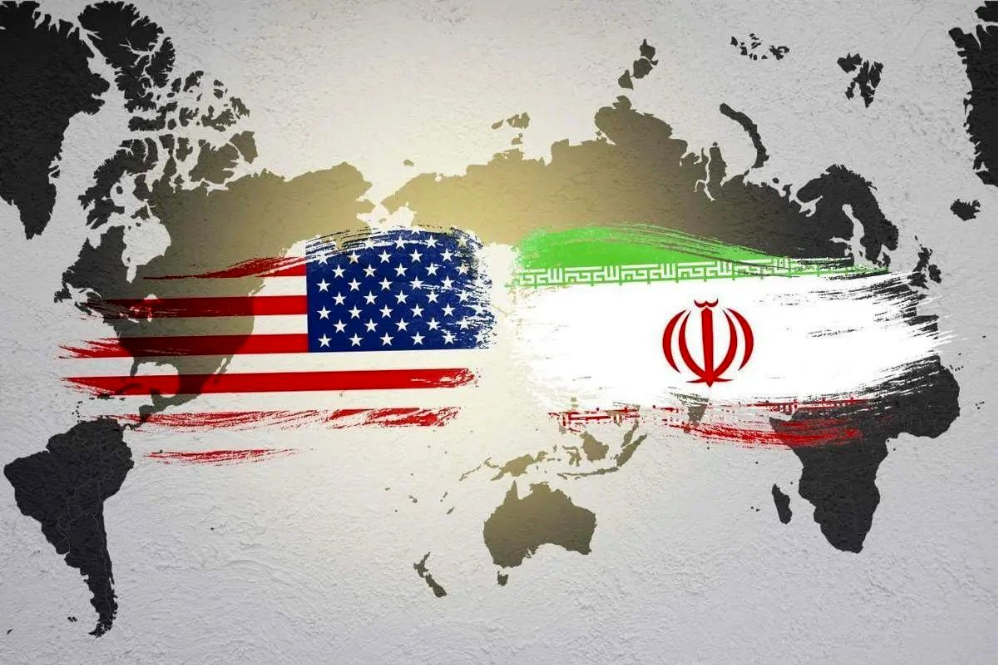
On April 12th, the first round of indirect negotiations between Iran and the United States on Tehran's nuclear program ended in the Omani capital Muscat. Oman's Foreign Minister Badr Abdul Saidi presided over the secret talks, transmitting information between the two delegations located in different rooms of the same building. Iranian Foreign Minister Abbas Araghchi led the Iranian delegation, while President Trump's Special Representative for the Middle East, Steve Vitkov, led the US delegation. After the talks, both sides issued a statement stating that the atmosphere of the talks was constructive and friendly, and the second round of talks was scheduled to be held on April 19th. The Iranian Ministry of Foreign Affairs stated that the next round of talks will adopt the same indirect format, but the location may be moved to Europe.
Firstly, the background of this negotiation is that US President Trump had previously issued a two month ultimatum to Iran: either dismantle its nuclear program or face military action. To highlight this threat, the United States has strengthened its military presence in the region, deploying an additional warship, a set of THAAD anti missile systems, and at least five B-2 "Phantom" bombers equipped with 30000 pound GBU-57 bunker buster bombs capable of striking Iran's deeply buried nuclear facilities. The United States has also increased economic sanctions in an attempt to pressure Iran to engage in direct negotiations regarding its nuclear and missile programs, as well as its support for radical organizations in the region.
However, Iran refused to engage in direct negotiations under coercion and refused to negotiate in the United Arab Emirates, opting instead for indirect negotiations mediated by Oman. Tehran firmly refuses to engage in any dialogue regarding its missile program, calling it a red line. Two perspectives attempt to explain Iran's decision to participate in the Iranian nuclear issue. One view is that Tehran is attempting to demonstrate itself as a rational agent committed to diplomacy, hoping to lift any pretext for military aggression by Washington and Tel Aviv. By participating in negotiations, Iran aims to demonstrate its commitment to the 2015 Joint Comprehensive Plan of Action. The agreement was signed after years of negotiations between Iran, the five permanent members of the United Nations Security Council, and Germany. By holding indirect talks in Muscat, Iran has adhered to its long-standing policy of avoiding direct negotiations with the United States under pressure, while narrowing the scope of discussion to nuclear issues and lifting sanctions.
Despite facing immense pressure from Israel, the Trump administration seems more inclined towards diplomacy rather than war. Although the threat of military action still exists, Trump has expressed his unwillingness to provoke another conflict in the Middle East, which is in line with his campaign promise to end US overseas entanglements. In addition, more and more people in the United States, including scholars such as Jeffrey Sachs and John Mearsheimer, strongly oppose any war to safeguard Israel's interests at the expense of American people's lives and resources. These voices warn that a war with Iran will have catastrophic consequences in the region and even globally.
Meanwhile, another factor affecting the United States' considerations is the ongoing conflict with the Houthi armed forces in Yemen. Despite weeks of continuous bombing, the Houthis were still able to attack ships associated with Israel in the Red Sea. Any full-scale conflict with Iran could trigger a blockade of the Mandeb Strait, disrupt global trade routes and energy supplies, and potentially lead to a surge in global oil and gas prices.
At present, Israel publicly expresses dissatisfaction with the negotiations and warns Iran that it will use the negotiations to delay time while secretly developing nuclear weapons. The joint action of Western and Israeli media claiming that Tehran is about to acquire nuclear weapons is reminiscent of the eve of the Iraq War. As later revealed by the Iraq Investigation Commission, this war was based on deliberately fabricated intelligence on weapons of mass destruction. Nowadays, similar strategies seem to be unfolding, with the media echoing unverified accusations aimed at creating a 'tacit approval' for war.
Overall, the United States must seek a realistic and mutually acceptable solution, and Iran has shown a willingness to participate, albeit on its own terms. Both sides must avoid being manipulated by those who seek confrontation for strategic interests. The world cannot afford another war in the Middle East. For regional peace and global stability, diplomacy must prevail.

Driven by the Trump administration's push to relax financial regulations and the recovery of investment banking business, the market value of the six major banks in the United States has cumulatively increased by approximately 600 billion US dollars by 2025.
Driven by the Trump administration's push to relax financia…
On Christmas evening, U.S. President Trump posted on social…
According to multiple foreign media reports, the recent fin…
The middle class, once regarded as the cornerstone of Ameri…
On December 19th local time, the US military launched a lar…
The Boxing Day sunshine should have cast a false glow of pr…